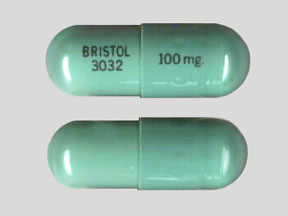Lomustine
Generic name: lomustine [ LOE-mus-teen ]
Brand names: Gleostine, CeeNU
Dosage form: oral capsule (10 mg; 100 mg; 40 mg)
Drug class: Alkylating agents
What is lomustine?
Lomustine is used to treat brain tumors in people who have already received surgery or radiation.
Lomustine is also used with other cancer medicines to treat Hodgkin's disease, after other treatments have failed.
Lomustine may also be used for purposes not listed in this medication guide.
Lomustine side effects
Get emergency medical help if you have signs of an allergic reaction: hives; difficult breathing; swelling of your face, lips, tongue, or throat.
Lomustine may cause serious side effects. Call your doctor at once if you have:
-
jaundice (yellowing of the skin or eyes);
-
easy bruising, unusual bleeding (nose, mouth, vagina, or rectum), purple or red pinpoint spots under your skin;
-
kidney problems--little or no urination, swelling in your feet or ankles, feeling tired or short of breath;
-
signs of infection--fever, chills, sore throat, blisters or ulcers in your mouth, red or swollen gums, trouble swallowing; or
-
late-onset lung damage--new or worsening cough, chest pain, shortness of breath (may develop as long as 6 months or later after you take lomustine).
Common side effects of lomustine may include:
This is not a complete list of side effects and others may occur. Call your doctor for medical advice about side effects. You may report side effects to FDA at 1-800-FDA-1088.
Related/similar drugs
Warnings
Lomustine can weaken (suppress) your immune system. Serious and sometimes fatal infections may occur up to 6 weeks after you are treated with lomustine. Call your doctor if you have easy bruising, unusual bleeding (nose, mouth, vagina, or rectum), or signs of infection (fever, chills, body aches).
Lomustine can have long lasting effects on your body. Your blood will need to be tested once per week for at least 6 weeks after each dose of this medicine.
Before taking this medicine
Tell your doctor if you have ever had:
-
bone marrow suppression;
-
kidney disease; or
-
lung disease or breathing problems.
Using lomustine may increase your risk of developing other types of cancer, such as leukemia. Ask your doctor about your specific risk.
Lomustine can harm an unborn baby if the mother or the father is using this medicine.
-
If you are a woman, do not use lomustine if you are pregnant. Use effective birth control to prevent pregnancy while you are using this medicine and for at least 2 weeks after your last dose.
-
If you are a man, use effective birth control if your sex partner is able to get pregnant. Keep using birth control for at least 3.5 months (14 weeks) after your last dose.
-
Tell your doctor right away if a pregnancy occurs while either the mother or the father is using lomustine.
This medicine may affect fertility (ability to have children) in both men and women. However, it is important to use birth control to prevent pregnancy because lomustine can harm an unborn baby.
Do not breastfeed while using this medicine, and for at least 2 weeks after your last dose.
How should I take lomustine?
Follow all directions on your prescription label and read all medication guides or instruction sheets. Use the medicine exactly as directed.
Lomustine is taken in a single dose once every 6 weeks. Follow your doctor's dosing instructions very carefully.
Because an overdose of lomustine can be fatal, you will be given only enough of lomustine to take one dose every 6 weeks. To get the correct dose, you may need to take 2 or more capsules that are different types and colors.
Wear disposable rubber gloves when you handle a lomustine capsule. Throw the gloves away after one use.
Do not open the lomustine capsule. Do not use a broken pill. The medicine from a broken pill can be dangerous if it gets on your skin. If this occurs, wash with soap and water. Ask your doctor or pharmacist how to safely handle and dispose of a broken capsule.
Lomustine can weaken (suppress) your immune system. Serious and sometimes fatal infections may occur up to 6 weeks after you are treated with this medicine. You will need frequent medical tests.
Store at room temperature away from heat and moisture. Keep the bottle tightly closed until you are ready to take the medicine.
Lomustine can have long lasting effects on your body. Your blood will need to be tested for at least 6 weeks after each dose of this medicine.
What happens if I miss a dose?
Call your doctor for instructions if you miss a dose of lomustine.
What happens if I overdose?
Seek emergency medical attention or call the Poison Help line at 1-800-222-1222. An overdose of lomustine can be fatal.
Overdose can cause stomach pain, vomiting, diarrhea, loss of appetite, dizziness, cough, shortness of breath, signs of infection, or liver problems.
What should I avoid while taking lomustine?
Avoid being near people who are sick or have infections. Tell your doctor at once if you develop signs of infection.
What other drugs will affect lomustine?
Other drugs may affect lomustine, including prescription and over-the-counter medicines, vitamins, and herbal products. Tell your doctor about all your current medicines and any medicine you start or stop using.
More about lomustine
- Check interactions
- Compare alternatives
- Drug images
- Side effects
- Dosage information
- During pregnancy
- Drug class: alkylating agents
- En español
Patient resources
Other brands
Professional resources
Other brands
Related treatment guides
Further information
Remember, keep this and all other medicines out of the reach of children, never share your medicines with others, and use this medication only for the indication prescribed.
Always consult your healthcare provider to ensure the information displayed on this page applies to your personal circumstances.
Copyright 1996-2025 Cerner Multum, Inc. Version: 7.01.

